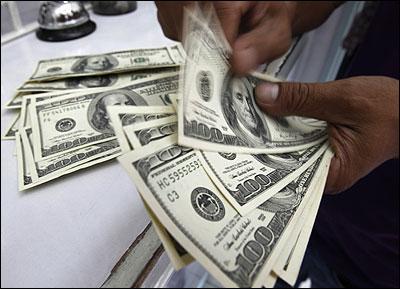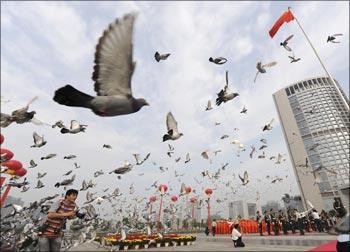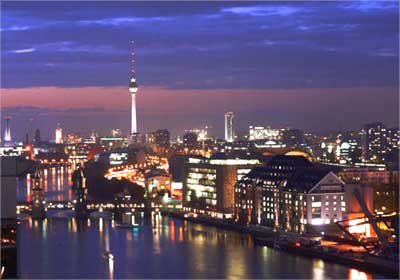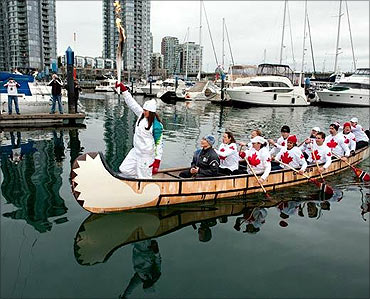 | « Back to article | Print this article |
10 countries with most billionaires
Nothing hits the headlines more than news about billionaires and their wealth as people never miss to garner information on the rich.
Earlier, billionaires used to be Americans and Europeans.
Not anymore.
Now, members of the world's billionaire club hail from all over the globe, first and third world countries alike.
The 2011 Wealth Report published a list of 10 countries with most billionaires.
Click NEXT to read about them. . .
10 countries with most billionaires
1. USA
Number of billionaires: 396
Total Population: 307,006,550
The US has the largest and most technologically powerful economy in the world, with a per capita GDP of $48,000.
The United States is the largest importer of goods and third largest exporter, though exports per capita are relatively low.
Canada, China, Mexico, Japan, and Germany are its top trading partners.
The country's long-term problems include inadequate investment in economic infrastructure, rapidly rising medical and pension costs of an aging population, sizable trade and budget deficits, and stagnation of family income in the lower economic groups.
The global economic downturn, the sub-prime mortgage crisis, investment bank failures, falling home prices, and tight credit pushed the United States into a recession by mid-2008.
Click NEXT to read further. . .
10 countries with most billionaires
2.China
Number of billionaires: 72
Total Population: 1,331,460,000
Since the introduction of market-based economic reforms in 1978, China has become the world's fastest-growing major economy and the world's largest exporter and second-largest importer of goods.
It is the world's second-largest economy, after the United States, by both nominal GDP and purchasing power parity.
Much newsprint has been dispensed recently discussing China racing past Japan to become the world's second-largest economy.
The second quarter of 2010 saw China's gross domestic product standing at $1.34 trillion and Japan's at $1.29 trillion.
Click NEXT to read further. . .
10 countries with most billionaires
3. Russia
Number of billionaires: 58
Total Population: 141,850,000
Russia has a market economy with enormous natural resources, particularly oil and natural gas.
It is the 10th largest economy in the world by nominal gross domestic product and the 6th largest by purchasing power parity.
Approximately 13.7% of Russians lived below the national poverty line in 2010.
The economic development of the country has been uneven geographically with the Moscow region contributing a very large share of the country's gross domestic product.
Another problem is modernisation of infrastructure, ageing and inadequate after years of being neglected in the 1990s; the government has said $1 trillion will be invested in development of infrastructure by 2020.
Click NEXT to read further. . .
10 countries with most billionaires
4. India
Number of billionaires: 47
Total Population: 1,155,347,678
The Indian economy is the world's ninth-largest economy by nominal GDP and fourth largest economy by purchasing power parity.
India has become one of the fastest growing economies, and is considered a 'newly industrialised country'.
However, poverty, illiteracy, corruption and inadequate public health still remain the country's major challenges.
It is one of the five BRICS nations.
Click NEXT to read further. . .
10 countries with most billionaires
5. Germany
Number of billionaires: 43
Total Population: 81,879,976
Germany has the world's fourth largest economy by nominal GDP and the fifth largest by purchasing power parity.
It is the second largest exporter and third largest importer of goods.
The country has developed a very high standard of living and a comprehensive system of social security.
Germany has been the home of many influential scientists and inventors, and is known for its cultural and political history.
Click NEXT to read further. . .
10 countries with most billionaires
6. UK
Number of billionaires: 42
Total Population: 61,838,154
The UK is a developed country and has the world's sixth-largest economy by nominal GDP and seventh-largest economy by purchasing power parity.
The UK has a partially regulated market economy.
It was the world's first industrialised country.
In the final quarter of 2008 the UK economy officially entered recession for the first time since 1991.
Click NEXT to read further. . .
10 countries with most billionaires
7. Hong Kong
Number of billionaires: 29
Total Population: 7,003,700
It has a free market economy highly dependent on international trade and finance, which has left it heavily exposed to the global economic slowdown that began in 2008.
The territory has become increasingly integrated with mainland China over the past few years through trade, tourism, and financial links.
The mainland has long been Hong Kong's largest trading partner, accounting for nearly 49 per cent of Hong Kong's exports trade by value in 2008.
GDP growth averaged a strong 5 per cent from 1989 to 2007, but the global financial crisis caused a sharp slowdown in the second half of 2008, pushing the territory into recession.
Click NEXT to read further. . .
10 countries with most billionaires
8.Switzerland
Number of billionaires: 27
Total Population: 7,731,167
It is also the third most innovative nation in the world.
Switzerland's largest banks suffered significant losses in 2008 and the country's largest bank accepted a government rescue deal in late 2008.
The Swiss National Bank, beginning in October 2008, cut interest rates on several consecutive occasions, effectively instituting a zero-rate policy in a bid to boost the economy.
Click NEXT to read further. . .
10 countries with most billionaires
9. Japan
Number of billionaires: 23
Total Population: 127,560,000
In the years following World War II, government-industry cooperation, a strong work ethic, mastery of high technology, and a comparatively small defense allocation (1 per cent of GDP) helped Japan advance with extraordinary speed to the rank of second most technologically powerful economy in the world after the US.
Today, measured on a purchasing power parity (PPP) basis, Japan is the third-largest economy in the world after the US and China.
Japan's huge government debt, which totals 170 per cent of GDP, and the aging of the population are two major long-run problems.
Click NEXT to read further. . .
10 countries with most billionaires
10. Canada
Number of billionaires: 22
Total Population: 33,739,900
Canada is one of the world's wealthiest nations, with a high per-capita income.
It is a member of the Organisation for Economic Co-operation and Development and the G8, and is one of the world's top ten trading nations.
Canada is a mixed economy, ranking above the US and most western European nations on the Heritage Foundation's index of economic freedom.
The largest foreign importers of Canadian goods are the United States, the United Kingdom, and Japan.










